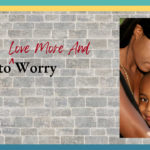Unlock the Power of Effective Communication for Positive Outcomes
Conflict is an inevitable part of life, but it doesn’t have to be a destructive force. In fact, conflicts can be opportunities for growth, understanding, and collaboration. In the book “Constructive Conversations: Ten Guidelines to Resolve Conflict & Drive Results at Work & Home,” you’ll discover valuable insights and practical strategies to navigate conflicts effectively and achieve mutually beneficial outcomes. Before your next important conversation, consider the following guidelines.
Constructive Conversation Guidelines
- Begin conversations with your desired result in mind.
- Do not begin a conversation when you are focused on the problem.
- Get clear and focused on a solution that works for you before discussing problems with others.
- Schedule time for a Constructive Conversation whenever you want to build connection, work on an issue, or achieve an objective.
- If you are aware of a need, take the lead in creating the resolution.
- Give others time to set aside their current projects or thoughts so they can be present for a discussion.
- Communicate to gain understanding, find a solution, and move forward.
- Do not communicate to prove right and wrong.
- Focus on kind or solution-based thoughts about yourself and others.
- Painful thoughts affect your behavior & filter what you see.
- Be responsible.
- Expect others to be the same.
- Take the time to make plans you agree on – win-win solutions.
- Be committed and stick to the plans you make or communicate and renegotiate a new plan before changing directions.
- Be accountable.
- Follow through with your plans and agreements.
- Hold others accountable to do the same.
TROUBLE SHOOTING:
- Forgive.
- Forgive yourself for not knowing and doing better back then or for putting yourself in the situation.
- Forgive others for not knowing a better way at that time either.
- Focus on what you learned and grow forward, applying what you now know.
- Make amends.
- Address the cause of your hurtful behavior – your thoughts, feelings, habits, or beliefs.
- Demonstrate and stay committed to your new behaviors.
MAINTENANCE:
- Practice Self-Care.
- Maintain your energy and ability to enjoy life and resolve challenges by remaining cognizant of your needs and committed to taking care of them.
Conflict resolution is an essential skill in both professional and personal domains. By applying the ten “Constructive Conversations” guidelines you can transform conflicts into opportunities for growth, strengthen your relationships, and drive positive results. Embrace the power of effective communication and unlock your potential to resolve conflicts with grace and empathy.





